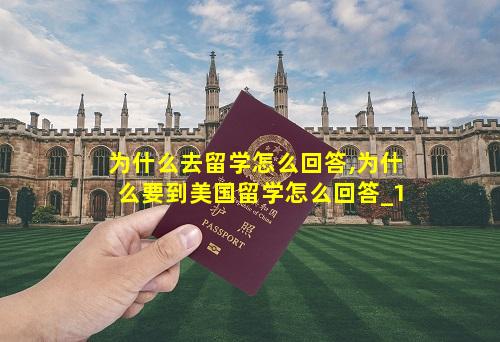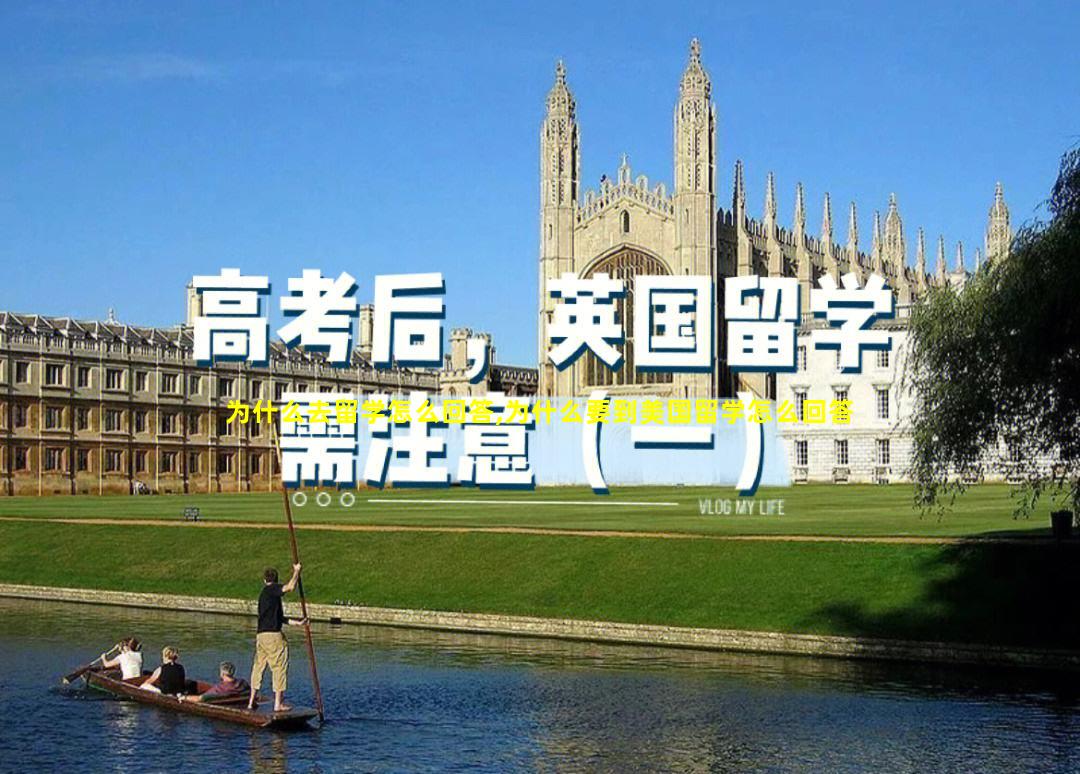 策留网
策留网原因 1:个人成长和发展
为了拓宽视野,体验不同的文化和生活方式。
为了培养独立性、适应力和解决问题的能力。
为了提高自信心和全球胜任力。
原因 2:学术追求卓越

为了获得特定领域的专业知识和技能。
为了接触世界一流的教育资源和研究机会。
为了在竞争激烈的全球劳动力市场中脱颖而出。
原因 3:职业目标
为了获得在特定行业或职业中取得成功的必要技能和资格。
为了建立国际人脉和扩大职业机会。
为了提高就业能力和晋升潜力。
原因 4:体验不同文化
为了沉浸在新的文化中,了解不同的社会规范和价值观。
为了学习新语言,增进跨文化交流能力。
为了建立全球视角和对世界更深入的理解。
原因 5:实现个人目标
为了追求个人热情和兴趣。
为了探索不同的可能性和确定人生方向。
为了挑战自我并突破舒适区。
回答要点:
学术卓越:美国拥有世界领先的大学,提供广泛且优质的学术课程,在特定领域处于领先地位。
文化多样性和全球视野:美国是一个多民族国家,吸引了来自世界各地的学生,创造了一个充满活力且多元化的学习环境。
职业机会:美国拥有强劲的经济和蓬勃发展的就业市场,为国际学生提供了丰富的职业机会。
个人成长和独立性:出国留学可以促进个人成长、提高独立性和责任感,培养解决问题的能力。
研究和创新中心:美国是研究和创新的中心,为学生提供接触尖端技术和最先进研究的机会。

享誉全球的教育体系:美国教育体系受到全球的高度认可,获得的学位具有国际公认的价值。
体验不同的文化和生活方式:出国留学可以让学生体验不同的文化、生活方式和观点,拓宽他们的视野。
语言沉浸:对于非英语母语的学生来说,在美国留学提供了沉浸式环境,可以提高他们的英语语言技能。
获得国际经验:在美国留学可以为学生提供在全球互联世界中取得成功的宝贵国际经验。
建立人脉:美国大学拥有活跃且广泛的校友网络,为学生提供建立人脉和建立职业联系的机会。
Why Study Abroad: An Essay
Studying abroad offers an unparalleled opportunity to expand one's horizons and acquire invaluable experiences. It is a transformative journey that enriches both academic and personal growth, forging memories that will last a lifetime.
Firstly, studying abroad enhances language proficiency in an immersive environment. Students are exposed to the target language on a daily basis, interacting with native speakers and engaging in cultural activities. This immersion accelerates language acquisition and allows students to develop fluency in both written and spoken communication.
Furthermore, studying abroad broadens cultural perspectives. By living in a foreign country, students gain firsthand insights into different cultures, customs, and values. They learn to appreciate diversity, challenge their own assumptions, and develop a global mindset. This intercultural understanding prepares students to navigate an increasingly interconnected world.
Academically, studying abroad provides unique learning opportunities. Students can access specialized courses and research facilities that may not be available in their home country. They engage in collaborative projects with international peers, gaining exposure to different academic approaches and expanding their knowledge base. Moreover, studying abroad enhances critical thinking, problemsolving, and independence as students navigate unfamiliar environments and adapt to new challenges.
Beyond the academic and cultural benefits, studying abroad fosters personal growth. Students develop resilience, adaptability, and selfconfidence as they step outside of their comfort zones and immerse themselves in a new culture. They learn to manage homesickness, make new friends, and overcome challenges independently. These experiences contribute to their emotional maturity and equip them with skills that will serve them well in their future endeavors.
In addition, studying abroad enhances employment prospects. Employers value with international experience, recognizing their global perspective, cultural adaptability, and problemsolving abilities. Graduates who have studied abroad are more competitive in the job market, securing positions in multinational corporations, nonprofit organizations, and government agencies.
In conclusion, studying abroad offers an exceptional opportunity for academic, cultural, personal, and professional growth. By immersing themselves in a foreign country, students not only improve their language skills and expand their cultural perspectives but also develop invaluable skills, broaden their horizons, and prepare themselves for success in a globalized world. Therefore, the decision to embark on a study abroad experience is an investment in oneself, fostering lifelong benefits and unforgettable memories.
想出国留学的理由:
学术追求:
获得世界级教育,接触领先的研究和创新。
体验不同的学术环境,拓宽知识面。
接触来自不同文化背景的教授和同学。
职业发展:
提高就业前景,获得国际认可的文凭。
培养全球化思维、文化敏感性和跨文化沟通技巧。
建立人脉,接触国际雇主。
个人成长:
独立和自我负责,在陌生的环境中茁壮成长。
探索新的文化,丰富人生经历。
培养适应性和灵活性,应对不同的挑战。
体验多样性:
接触不同的文化、语言、习俗和生活方式。
了解全球问题,培养全球视野。
结识来自世界各地的朋友,建立国际友谊。
语言习得:
沉浸在目标语言环境中,提高语言能力。
体验不同语言的语境和用法。
为国际交流和未来的职业奠定基础。
文化体验:
探索不同的艺术、音乐、美食和社会习俗。
了解历史和文化遗产,开阔眼界。
欣赏不同观点和价值观,促进包容和理解。